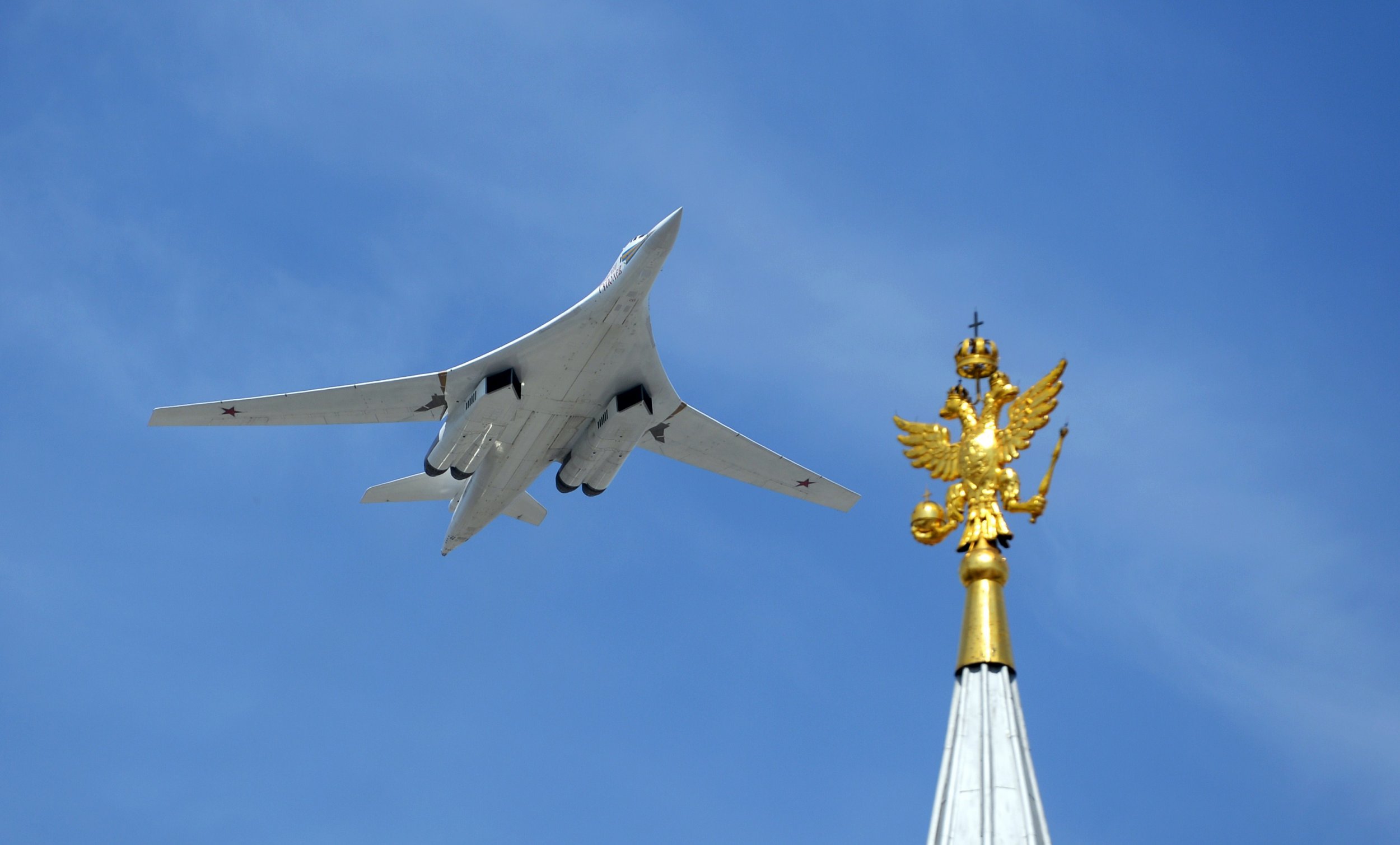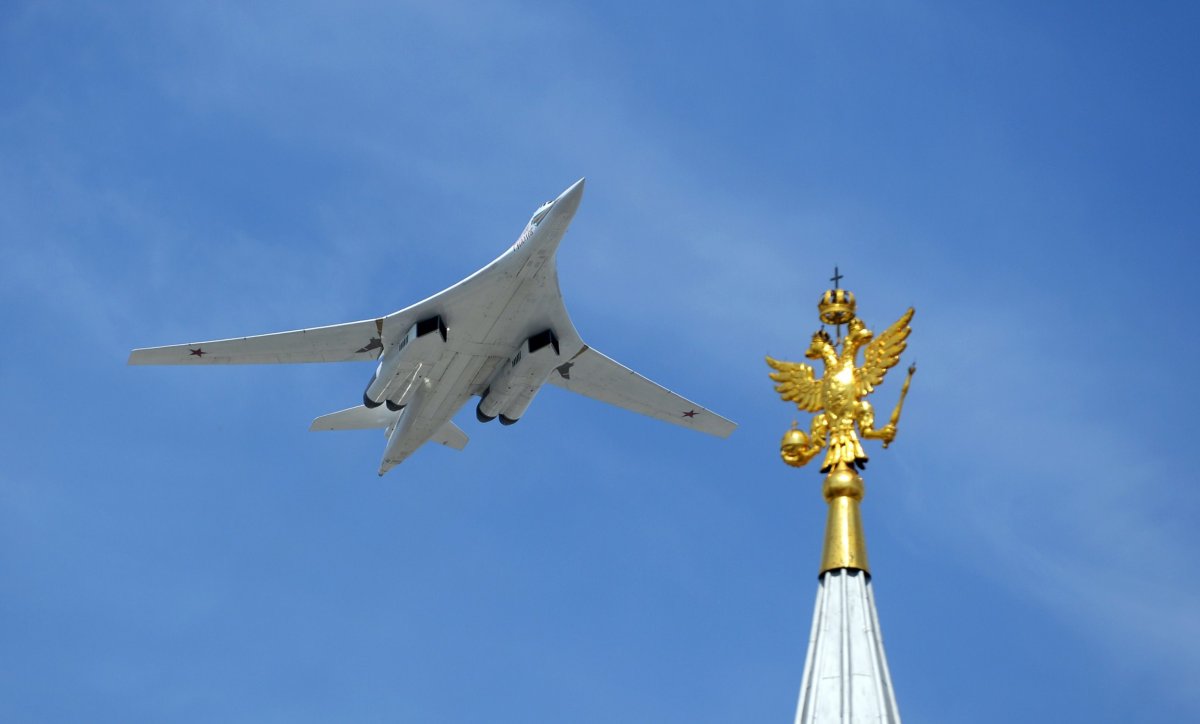
Russia has announced the anticipated debut of a flying Soviet-era behemoth that's been completely revamped and refitted to dominate the skies of modern warfare.
Russian Deputy Prime Minister Dmitry Rogozin reported Thursday to President Vladimir Putin himself, telling the Russian leader that the latest reboot of the Tupolev TU-160 heavy strategic bomber, called "Black Swan" by Russia and "Blackjack" by Western military alliance NATO, would make its first flight in February 2018. The latest inception of the massive nuclear-capable warplane was designated TU-160M2 and its reintroduction would represent another major step for Russia's increasingly advanced military power.
Related: Syria and Russia say ISIS is dead, now U.S. must go
"We plan that the aircraft will be built already in 2019. Serial deliveries should begin in 2023 while we plan to carry out the first flight of the Tu-160M2, which has been rolled out of the workshop today, in February next year," Rogozin said, according to the state-run Tass Russian News Agency.
"Everything is fine, just perfect. I congratulate the aircraft builders and I think we will deliver good news to the defense ministry," Putin said.

The original TU-160 entered into service in the late 1980s just as the Soviet Union began to collapse, severely limiting the supersonic warplane's production. About 16 of these surviving aircraft have remained in service and were modernized in 2005 to carry long-range cruise missiles. The planes have recently seen use in Syria, where Russian air power has helped Syrian President Bashar al-Assad and his armed forces overcome a six-year rebellion by insurgents and jihadis.
The TU-160 has not only proved a formidable component to Russia's conventional air force, but, along with the Tupolev Tu-95MS strategic bomber and missile carrier, comprised the aerial third of Russia's nuclear triad. The other assets were ground-based and submarine-launched. The new aircraft would be fitted with new mission systems, Kuznetsov NK-32 afterburning turbofans and new NK-32 02 series engines, which were more fuel efficient, according to The National Interest.
Quoting a defense ministry source, Tass reported last week that the TU-160 bearing the factory number 804 would become the first to receive the TU-160M2 upgrade. The first ever TU-160M2 could be seen on state media Thursday being rolled out of its assembly hangar at the Kazan Aviation Factory, which celebrated its 90th anniversary that same day.
#Russia's early prototype of the future Tu-160M2 strategic bomber, completed using unfinished Soviet Tu-160 airframe, leaves assembly workshop hangar, gets transferred to flight testing facility - expected to perform its first flight in February 2018 #Tu160IsBack pic.twitter.com/JXuip0XRKo
— Russia in RSA 🇷🇺 (@EmbassyofRussia) November 16, 2017
Under Putin, Russia has embarked on a massive campaign to modernize Russia's military, resurrecting it from the ashes of the Soviet Union and transforming it into a leading warfighting power. Russia's military rise has raised major concerns among neighboring countries, especially after Russian incursions into Georgia in 2008 and Ukraine in 2014.
Since Russia annexed the Crimean Peninsula amid political unrest in Ukraine in 2014, NATO has assumed a more aggressive stance against Moscow, and the two competing factions have initiated the largest arms race since the Cold War, with near constant military exercises among their respective allies. Both accuse the other of instigating further tensions and Andrew Radin, political scientist at the RAND Corporation, found Saturday that NATO's continued deployment of forces to the Balkans could inadvertently trigger an all-out war.
Uncommon Knowledge
Newsweek is committed to challenging conventional wisdom and finding connections in the search for common ground.
Newsweek is committed to challenging conventional wisdom and finding connections in the search for common ground.
About the writer
Based in his hometown of Staten Island, New York City, Tom O'Connor is an award-winning Senior Writer of Foreign Policy ... Read more
To read how Newsweek uses AI as a newsroom tool, Click here.








